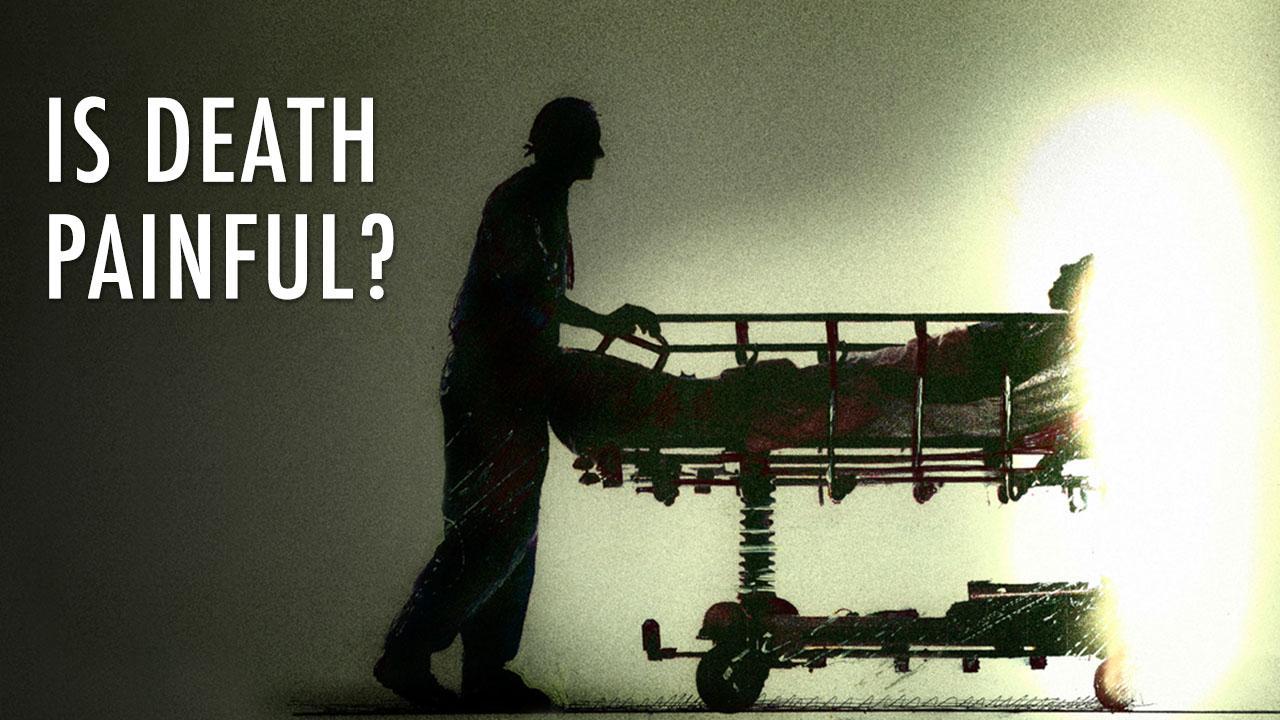Death is one of life’s greatest certainties and, paradoxically, one of its greatest mysteries. Across cultures and centuries, philosophers, scientists, and theologians have grappled with the question: should we embrace death as a natural conclusion of life, or seek to escape it, whether through legacy, transcendence, or technological advancement?
It is not death that a man should fear, but he should fear never beginning to live.
Marcus Aurelius, Roman Emperor and Stoic Philosopher
Drawing insights from studies such as the one published in PubMed (32982722), this blog explores these perspectives, offering a nuanced understanding of how humanity views mortality.
The Universality of Death: An Inescapable Reality
Death is universal. It spares no one, irrespective of status, age, or accomplishment. Its inevitability has led some philosophies, particularly in Eastern traditions, to advocate for its acceptance. In Buddhism, for example, impermanence is a central tenet. Life is transient, and by recognizing this truth, individuals can live more mindfully and authentically.

However, this view is not universally shared. In Western societies, there is often a cultural inclination to resist death. Modern medicine, longevity research, and even cultural depictions of heroism frequently portray death as an adversary to be conquered.
Embracing Death: A Philosophical Perspective
1. Death as Part of the Natural Cycle
Philosophers like the Stoics viewed death as a natural process, one that completes the cycle of life. Marcus Aurelius, a Roman emperor and Stoic philosopher, famously wrote, “It is not death that a man should fear, but he should fear never beginning to live.” Accepting mortality, they argued, frees individuals from the anxiety of the unknown and enables them to focus on living a virtuous life.

Studies support this idea. According to findings published in PubMed, individuals who reflect on their mortality often report higher levels of appreciation for life and prioritize meaningful experiences. This phenomenon, known as “mortality salience,” can shift focus toward what truly matters, fostering deeper connections and purpose.
2. Death as a Teacher
Embracing mortality has practical benefits. It acts as a motivator, reminding individuals of life’s brevity and the importance of seizing the moment. Memento mori, a Latin phrase meaning “remember you must die,” encapsulates this idea. This practice encourages mindfulness and gratitude, allowing people to live in alignment with their values.
The Desire to Escape Death
On the other hand, the instinct to avoid death is deeply ingrained in human nature. Evolutionarily, survival is paramount, and this drive manifests not just in physical self-preservation but also in intellectual and technological pursuits.
1. The Quest for Immortality
From alchemical attempts to create the elixir of life to contemporary research into anti-aging, humanity has consistently sought to extend life. Technological advancements, such as cryonics and genetic modification, fuel this dream. Researchers believe that unlocking the secrets of cellular aging could someday make death a choice rather than an inevitability.
To the well-organized mind, death is but the next great adventure.
J.K. Rowling, Author of the Harry Potter Series (through the character Albus Dumbledore)
However, this pursuit raises ethical questions. If immortality became attainable, who would have access? Would it exacerbate social inequalities? Moreover, would an eternal life diminish the meaning and urgency of human experiences?
2. Death Transcendence Through Legacy
Even when physical immortality is unattainable, individuals often seek metaphorical immortality through art, achievements, and family. By leaving a mark on the world, they attempt to ensure that their existence will not be forgotten. This drive for legacy can inspire great creativity and innovation but may also lead to anxiety about leaving enough behind.
The Psychological Dimension: Coping with Mortality
According to the study on PubMed, how individuals cope with the idea of death significantly affects their mental well-being. Those who actively avoid thinking about mortality often experience heightened fear and anxiety, known as thanatophobia. Conversely, individuals who confront and process their fears tend to develop resilience and peace of mind.

Therapeutic interventions like existential therapy encourage individuals to explore their relationship with death. These approaches help people recognize that while death is inevitable, they have the agency to shape the meaning and quality of their lives.
Ethical and Philosophical Implications
1. Should We Strive for Immortality?
As technology advances, society faces profound ethical dilemmas. If immortality were possible, would it create an existential crisis? Could the absence of death lead to stagnation or apathy, stripping life of its urgency and poignancy?
Philosopher Bernard Williams argued that immortality might ultimately become tedious. Without the constraint of time, human experiences might lose their depth and significance.
2. The Role of Acceptance
Acceptance of death does not necessarily mean surrender. Instead, it can be a source of empowerment. Acknowledging mortality enables individuals to focus on what they can control: how they live, love, and contribute to the world. It shifts the narrative from fearing the inevitable to embracing the present.
Striking a Balance
Rather than choosing between embracing or escaping death, perhaps the answer lies in finding a balance. Embracing death allows for gratitude and mindfulness, while the desire to transcend it fuels progress and innovation. These perspectives are not mutually exclusive; they can coexist to enrich the human experience.
Breaking Down the Barrier
Death is both a boundary and a teacher. Whether we choose to embrace or escape it, our relationship with mortality shapes how we live. By reflecting on our fears and desires, we can cultivate a life that is not only meaningful but also deeply connected to the present moment.
As the PubMed study suggests, confronting mortality is not a morbid endeavor—it is a path to greater appreciation, purpose, and peace. In the end, it is not death itself that defines us, but how we choose to live in its shadow.
Recent Insights into the Philosophy of Death: Should We Embrace or Escape It?
“Mortality Salience and Ethical Living”
A 2023 study examined the psychological effects of mortality salience—awareness of death—on ethical behavior. Researchers found that reflecting on the inevitability of death often encourages individuals to prioritize moral decisions, deepening their sense of responsibility toward others. The study suggests that accepting death as a natural part of life can foster a stronger commitment to ethical and compassionate living.
[Explore the research here.]
“Death Acceptance and Mental Resilience”
A 2022 psychological review explored how accepting mortality affects mental health. The findings showed that individuals who confront and process their fear of death tend to experience lower levels of anxiety and depression. Acceptance therapy techniques were highlighted as effective tools for building resilience and achieving a sense of peace with life’s impermanence.
[Read the detailed review here.]
“Escaping Death Through Technology: The Ethics of Cryonics”
In 2023, a bioethics study analyzed the growing field of cryonics and its philosophical implications. The research raised concerns about whether delaying death through technology undermines the natural order of life. It also questioned the social and ethical consequences of a world where cryonics is accessible only to the wealthy, potentially deepening inequalities.
[Discover more here.]
“Art and Legacy as Immortality Substitutes”
A 2022 cultural analysis studied how art, literature, and legacy-building provide an alternative to physical immortality. The findings revealed that creating enduring works can help individuals cope with their mortality by offering a sense of symbolic permanence. This perspective reinforces the idea that life’s finite nature fuels creativity and purpose.
[Learn about this study here.]
“The Fear of Death Across Cultures”
A 2023 cross-cultural study explored how different societies perceive and address the fear of death. The research found that cultures emphasizing collective identity—such as Indigenous communities—often exhibit lower levels of death anxiety. Their spiritual frameworks, which view death as a continuation of life in another form, encourage acceptance rather than avoidance.
[Read the insights here.]
“The Role of Religion in Death Acceptance”
A 2023 theological study investigated how religious beliefs influence attitudes toward death. The findings showed that faith traditions offering narratives of an afterlife or reincarnation significantly reduce death anxiety. However, the study also noted that rigid beliefs about salvation can increase fear for those who doubt their worthiness.
[Explore the findings here.]
“Existential Therapy: A Path to Embrace Mortality”
A 2022 review examined the effectiveness of existential therapy in helping individuals embrace death. The therapy focuses on finding personal meaning and accepting life’s uncertainties, enabling individuals to confront mortality with courage. The study concluded that this approach enhances overall life satisfaction and emotional well-being.
[Discover more here.]
“Escaping Death: A Psychological Perspective on Immortality”
A 2023 psychological inquiry delved into the emotional challenges of seeking to escape death. Researchers highlighted that the pursuit of immortality often stems from a deep fear of the unknown, but it can also lead to existential despair when individuals feel disconnected from the natural cycle of life.
[Read the detailed analysis here.]
“Intergenerational Wisdom in Embracing Death”
A 2022 sociological study explored the role of elder wisdom in teaching younger generations to embrace mortality. Findings emphasized that storytelling and shared cultural practices around death foster acceptance and understanding, helping societies maintain a healthy relationship with life’s finitude.
[Learn about the study here.]
“Resource Implications of Death Denial”
In 2023, environmental researchers examined the ecological costs of denying death, such as the pursuit of excessive medical interventions to prolong life. The study argued that an overemphasis on avoiding death exacerbates resource depletion, urging societies to balance medical advancements with sustainability.
[Explore the research here.]
These insights reveal the multi-dimensional nature of the debate on embracing or escaping death. Whether viewed through the lenses of psychology, sociology, ethics, or technology, our relationship with mortality continues to shape human behavior, values, and aspirations.

























